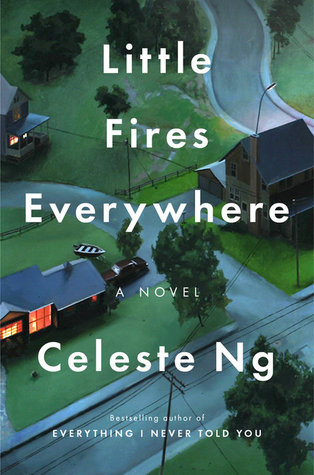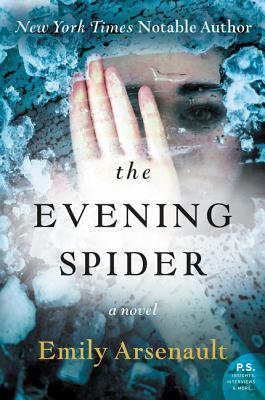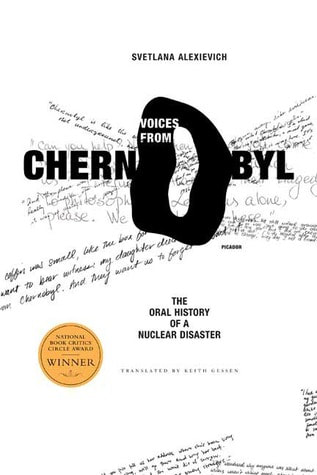 I started my January reading on fire. I was unstoppable. And then the onset of a new Semester and new courses slowed me down. But, I did read some fabulous books. I decided that if I wasn't going to read a lot, I would read the best. And I did. I follow The Girly Book Club, and their February pick, Blake Crouch's Dark Matter, is the plot driven, astounding novel you need right now--especially if you don't want to put it down, and you have some hours to spare reading. I spent a dark evening without power reading Rupi Kaur's The Sun and Her Flowers. I'd finally settled my toddler to bed, and looked forward to an evening with Netflix when our power flickered maniacally--really, I became Winona on Stranger Things for about two minutes of power indecisio until it was out for the night. I sighed, picked up Kaur's book (and a flashlight), and I didn't stop reading until the end. The power came back on somewhere towards the end of the collection--but I barely noticed. Earlier this year I read Nina Riggs' memoir, The Bright Hour, and she mentioned a haunted book she read called Voices from Chernobyl by Svetlana Alexievich. While I read Riggs' memoir I took a minute to check my library and put the title on hold. THIS BOOK! It haunts me still. The voices, clear on the page, reach out at you from a horrific nightmare, and I had to keep reminding myself that this happened. This is not fiction. This happened in my lifetime. Look no where else for your post-apocalyptic tale than this true collection of an atrocity we know too little about. I also picked up Brene Brown's Braving the Wilderness from my library holds, and although I'd read Brown before, this title unsettled me a bit. She pushes me out of my comfort zone. I disagreed with her for much of the first part of the book, but she brought me around in the end. Long on my TBR list has been Celeste Ng's Little Fires Everywhere. I so loved her first novel, Everything I Never Told You that I don't know what kept me from reading this beautiful book. I kept seeing Reese Witherspoon's Instagram newsfeed--@hellosunshine--popping with film news about this title, so I brought it to the top of my TBR pile, and I read it in two days. It is a beautiful book, just like Ng's first. She captures these characters and gives them such life. Her story of motherhood haunted me. Her ability to show people from all sides equally floored me. I look forward to more books by Celeste Ng, and to see what Reese will do with the film version. Over the March break my partner and I took our toddler to Indigo so she could play in the giant tea cup. And while he watched her play, I went straight to the sale books because not only did I have a long forgotten gift card, but they were giving out extra points. I walked out with nine new novels for $43, and of course I've yet to read all of them. A few days ago I randomly picked up the book on top of the pile, The Evening Spider, and started reading. I could barely do anything else but think of this book. It has everything delicious I need in a book: tired young mom in an old house finds an old journal from an equally tired young mom from the nineteenth century? Yes, please! There are so many layers and extra-textual materials that this book just delighted me from page one. Thank you to author Emily Arsenault for such a wonderful read. So, my two months of reading didn't add many notches on my Goodreads challenge and 50 Book pledge, but I did read a variety of wonderful books.
0 Comments
I’m currently teaching Hamlet in my senior English course. One of the exercises in writing I’ve assigned is the “Existential High School Student”. The assignment asks the students to reflect on the following questions: Who am I? What is my true identity? Where am I going? What is my greater purpose? How should I live my life?
It is a good time to ask these questions, when students are graduating high school and embarking on all new adventures. Think, I say, and really dig into the question: What kind of person do I want to be in this world? When I review the assignment with my students, I inevitably reflect on the questions myself. I am a new mom, I am a teacher, I am a reader, and I want to be a writer. It has only been recently that I decided I am old enough to drop the “want” and call myself a writer. And as I accept my new roles and my new self, it is the existential questions that I have been drawn to in other writers. At 36, I’ve found myself in a time of reflection that has me on a reading quest. In January, I started finding books that asked the same questions. Let me take a moment to tell you that I am a book hoarder. I am constantly on the search for the great book. I like reading about books almost as much as I like reading books. As a result, I put a lot of books on hold at the library. I’ve memorized my NB Public Library card numbers (I have two). In January, four books appeared on my holds list, ready for pick up, and by happenstance the four memoirs were connected. Each story reflects the author's experience at my own age, and each story examines those very existential questions I ask my students. Ultimately, it was the reading experience that linked the four books for me: I felt as if the authors all reached out, grabbed me, and sat me down for a fireside chat. By the end of the month I’d read four books that came together in so many ways, but the driving force behind each was the beauty of the storytelling. The shared story so profound and inspiring that it has taken me some time to write about the experience. I started with When Breath Becomes Air by Paul Kalanithi. Reading this little book felt like I’d been given a tome of poems, and an evening with a wise old friend who I wish I’d known. Kalanithi was diagnosed with terminal cancer at 36. As I read this memoir--the weight of wisdom and philosophy and literature and poetry all falling out at me--I was sure he was a peer of the Romantic writers I’d come to adore. I could almost picture Kalanithi sitting alongside Byron and the Shelley’s talking about “What makes life meaningful enough to go on living?” and then setting out to write this masterful little book. But it was not under these sublime circumstances that Kalinthi wrote his memoir, instead it was at the end of his medical training, at 36, diagnosed with terminal cancer that he leaves us his story. Reading his book felt like taking part in a shared story. His is a story that demands to be told, and a reading experience like none I’ve experienced. Next, on my library holds came The Bright Hour: A Memoir of Living and Dying by Nina Riggs. Admittedly, I had ordered both books after reading this article in the Washington Post: ”Two dying memoirists wrote bestsellers about their final days. Then their spouses fell in love.” The stories not just of the two memoirs but of the coming together of the love between these two bereaved people just floored me. Reading Riggs book was its own experience. I fell in love with every word she wrote. She is funny and heartbreaking and poetic. I remember one moment reading her book thinking: this is absolute poetry. Where Kalinthi wowed me with his philosophy and expression of the sublime, Riggs’ memoir moved me with prose like poetry did when I first really read it at University. Like sitting down at 18 and discovering Plath and Roo Borson and all these beautiful greats, that was what reading this book was for me. And so I dug around and found she’d written a book of poetry and I set out to find it. Beauty. That is what this book left me feeling. The absolute beauty of life. All the messy things about running after my toddler, coming home to the messy bits left by a dog who’s rummaged through the garbage, all those tiny moments of life she slowed down for me and whispered: Just take it in. Just watch, listen and slow down. This book is pure beauty. On my holds list came two more memoirs. I had so many books on my holds, but these four books came flying at me all at once and each author so close to my own age that I felt in some way it was meant to be. These stories needed to be read and sitting down to read a memoir feels like that. You sit and read and you take in someone else’s story in your hands. You give them your time. And that is how I came to My Lovely Wife in the Psych Ward by Mark Lukach. I read this book over a Sunday, sitting on my sofa with my toddler, sitting at lunch, and into the evening, finishing it late at night. I kept reading. I felt like Lukach had words to share, had an experience that needed to be read, and he makes his audience a part of that. The fourth memoir that came to me was similar to Lukach’s account of living with a partner suffering mental illness. A Beautiful, Terrible Thing: A Memoir of Marriage and Betrayal by Jen Waite was again a read in which I sat down and listened like I would to a friend. She wanted her story to be told, to be heard, and that is how I approached it. I read about her life in New York City and her subsequent move to Maine. I followed along watching as her shocking breakup mirrored one of my own. I finished with the intent to reach out and write to her. I intend to still. I want to tell her: you’re not alone. I want to write to her and thank her for sharing her story, an inspiration to share my own. Four memoirs, four voices, and four existential reflections on life. I recommend each one, so go out and take the story in, appreciate the beauty of a shared story, and then go write down your own. |
Book ReviewsThese writings are comprised of my creative nonfiction, and books, books, books. This blog is a exploration of the books I read, the people I meet, and my life as a backyard homesteader. Archives
February 2021
Categories
All
|
Proudly powered by Weebly


 RSS Feed
RSS Feed